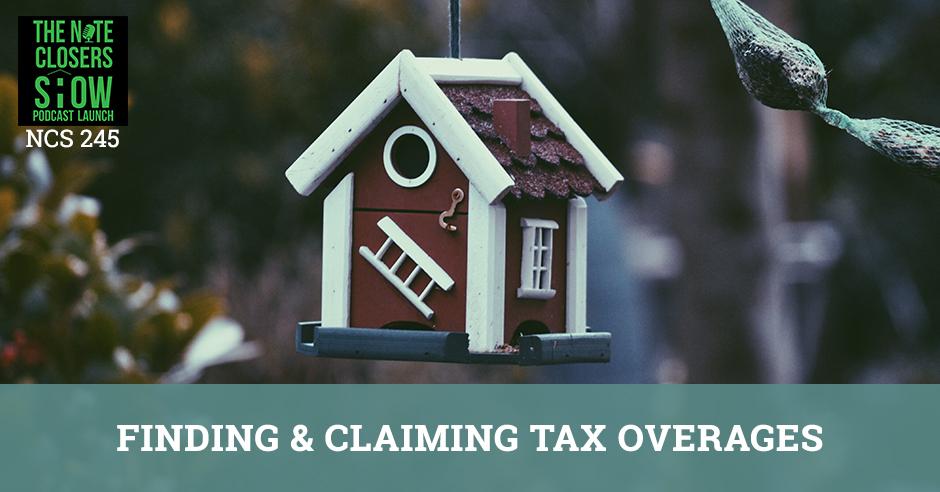All Categories
Featured
Table of Contents
Most of those homeowners didn't also know what excess were or that they were even owed any type of surplus funds at all. When a property owner is unable to pay property taxes on their home, they may lose their home in what is known as a tax sale public auction or a sheriff's sale.
At a tax sale public auction, residential or commercial properties are sold to the highest possible prospective buyer, however, in some situations, a residential or commercial property might cost even more than what was owed to the area, which causes what are called surplus funds or tax sale overages. Tax sale overages are the extra cash left over when a confiscated property is sold at a tax obligation sale public auction for greater than the amount of back taxes owed on the residential property.
If the residential or commercial property markets for greater than the opening bid, then overages will be produced. What many homeowners do not know is that several states do not allow regions to keep this additional cash for themselves. Some state laws dictate that excess funds can only be claimed by a few celebrations - consisting of the person that owed taxes on the building at the time of the sale.
If the previous residential property owner owes $1,000.00 in back tax obligations, and the residential or commercial property costs $100,000.00 at public auction, then the law specifies that the previous residential or commercial property proprietor is owed the difference of $99,000.00. The area does not reach maintain unclaimed tax overages unless the funds are still not claimed after 5 years.
Cost-Effective Real Estate Overage Funds Course Tax Sale Overage List
However, the notification will usually be sent by mail to the address of the property that was marketed, but considering that the previous homeowner no much longer lives at that address, they usually do not receive this notice unless their mail was being sent. If you remain in this scenario, do not let the government maintain money that you are qualified to.

From time to time, I hear discuss a "secret new opportunity" in business of (a.k.a, "excess earnings," "overbids," "tax obligation sale excess," and so on). If you're completely unfamiliar with this concept, I wish to offer you a quick summary of what's taking place here. When a property proprietor quits paying their real estate tax, the regional town (i.e., the county) will certainly wait on a time prior to they take the home in foreclosure and market it at their annual tax sale public auction.
The details in this article can be impacted by many one-of-a-kind variables. Suppose you own a property worth $100,000.
Foreclosure Overages List Foreclosure Overages

At the time of foreclosure, you owe concerning to the region. A few months later, the region brings this building to their yearly tax obligation sale. Here, they sell your building (together with dozens of other overdue residential or commercial properties) to the highest possible bidderall to recover their lost tax obligation earnings on each parcel.
Most of the financiers bidding on your property are fully conscious of this, also. In several instances, residential or commercial properties like yours will obtain proposals Much past the quantity of back taxes really owed.
However get this: the county only needed $18,000 out of this property. The margin in between the $18,000 they required and the $40,000 they obtained is understood as "excess profits" (i.e., "tax sales overage," "overbid," "excess," etc). Several states have statutes that forbid the region from maintaining the excess repayment for these properties.
The county has policies in place where these excess earnings can be claimed by their rightful owner, usually for a designated duration (which varies from state to state). If you lost your building to tax obligation repossession because you owed taxesand if that property ultimately sold at the tax obligation sale auction for over this amountyou can feasibly go and collect the distinction.
Exclusive Tax Sale Overage Recovery Program Tax Sale Overage Recovery
This includes proving you were the prior owner, completing some paperwork, and awaiting the funds to be provided. For the typical individual who paid complete market price for their home, this technique doesn't make much feeling. If you have a significant amount of cash money invested into a home, there's means way too much on the line to just "let it go" on the off-chance that you can bleed some additional cash money out of it.
With the investing strategy I make use of, I can buy buildings totally free and clear for dimes on the buck. When you can get a residential property for a ridiculously low-cost price AND you recognize it's worth substantially even more than you paid for it, it may very well make feeling for you to "roll the dice" and attempt to accumulate the excess earnings that the tax repossession and auction process generate.
Tax Deed Overages Unclaimed Tax Overages
While it can absolutely turn out similar to the method I have actually defined it above, there are also a couple of drawbacks to the excess earnings approach you truly should understand. Overages Surplus Funds. While it depends greatly on the qualities of the residential or commercial property, it is (and in some situations, most likely) that there will be no excess profits created at the tax obligation sale auction
Or maybe the county does not produce much public interest in their auctions. Either method, if you're acquiring a residential or commercial property with the of letting it go to tax foreclosure so you can accumulate your excess earnings, what happens if that cash never comes with? Would certainly it deserve the time and cash you will have thrown away as soon as you reach this verdict? If you're expecting the region to "do all the job" for you, then think what, Oftentimes, their schedule will actually take years to turn out.
The very first time I pursued this approach in my home state, I was told that I really did not have the option of declaring the excess funds that were produced from the sale of my propertybecause my state didn't allow it (Tax Auction Overages). In states like this, when they generate a tax sale overage at an auction, They just maintain it! If you're thinking about utilizing this technique in your company, you'll intend to believe long and hard concerning where you're working and whether their laws and statutes will certainly also allow you to do it
Overages Surplus Funds Mortgage Foreclosure Overages
I did my finest to offer the right answer for each state above, however I 'd recommend that you prior to continuing with the assumption that I'm 100% correct. Keep in mind, I am not a lawyer or a CPA and I am not attempting to offer specialist lawful or tax obligation guidance. Talk with your lawyer or CPA prior to you act upon this info.
Table of Contents
Latest Posts
Delinquent Tax Properties Near Me
Investing Tax Lien
Excess Proceeds
More
Latest Posts
Delinquent Tax Properties Near Me
Investing Tax Lien
Excess Proceeds